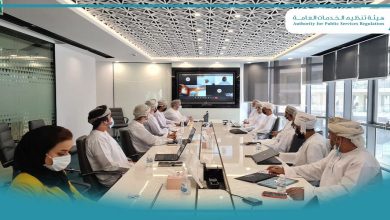Vulnerability Analysis & Mapping Officer NOA (plus roster creation)

WFP encourages female candidates and people with disabilities to apply.
WFP seeks candidates of the highest integrity and professionalism who share our humanitarian principles. Selection of staff is made on a competitive basis. We are committed to promoting diversity and the principle of equal employment opportunity for all our employees and encourage qualified candidates to apply irrespective of religion or belief, ethnic or social background, gender, gender identity and disability.
Job Title: Vulnerability Analysis & Mapping Officer
Grade: NOA
Type of contract: National Officer (NOA) Fixed-Term Contract
Duty Station: Bishkek, Kyrgyz Republic
Vacancy Number: 205587
Date of Publication: 27 December 2022
Deadline of Application: 10 January 2023
This vacancy announcement is for Nationals from Kyrgyz Republic
Terms and Conditions:
WFP offers a competitive benefits package including salary, pension, leave plus a medical insurance
PURPOSE OF THE ASSIGNMENT
The Research, Analysis and Monitoring (RAM) team operates segregated from Programme under the supervision of the Deputy Country Director, and functions as a service provider, incl. for management and for external partners, for (not all-inclusive, nor exhaustive):
- Evaluation, Review and Impact Assessment include coordination of monitoring activities, managing or supporting the management of decentralized evaluations, supporting thematic/mid-term reviews and positioning WFP as a reliable partner for governments to build monitoring and evaluation strategies.
- Economic analysis, coupled with nutrition, social, political, gender and environmental analysis, is an indispensable element for a comprehensive and multidimensional understanding of the causes and the effects of hunger. The complex interplay of economic forces operating at the international, national, local and household levels is manifest in economic signals and choices such as prices, production and consumption that can lead to food insecurity and vulnerability.
- Leave-No-One-Behind (LNOB) Assessment and Targeting generates analyses to inform tailored vulnerability and quality needs assessments and related targeting processes across WFP and beyond.
- Climate and Earth Observation undertakes the analysis of remote sensing data across the full range of spatial resolutions. By leveraging satellite data and monitoring from above, our geospatial analysts observe growing seasons, provide climate analyses, assess refugee and IDP camp status, detect land cover changes across regions and countries where WFP operates in.
- Field Monitoring for tracking, collecting and analyzing programme performance to inform decision-making, maintain operational focus on results, and generate data for outcome / impact analyses.
- Market Analyses, including the Market Functionality Index (MFI) package (in collaboration with Supply Chain), labour market and value chain analyses.
- Essential Needs and Nutrition Analyses, covering supply assessments for essential needs or dietary intake (incl. minimum expenditure baskets), as well as the measuring set-up for effective Social Behaviour Change Communication (SBCC).
- Price data collection and price analysis, incl. calculating and using the Alert for Price Spikes (ALPS) Indicator.
- plus other.
With a commitment to strengthen research, assessments, monitoring and evaluation, both internally and in support of national systems, to help ensure that WFP and government programmes target people in vulnerable situations and meet their needs in a holistic, efficient and timely manner, this vacancy for the Vulnerability Analysis and Mapping (VAM ) Officer position will also serve to establish a Roster of VAM Experts and may serve to fill lower-level VAM Associate/Assistant positions.
Supervision: VAM staff operate independently and are involved in operational activities in an advisory and support function with related analytical work. Under the overall coordination of the Deputy Country Director, the VAM Officer reports to the Head of RAM and supervises more junior staff. Where VAM is involved in digital programme activities or in proposal writing and other programme-related tools and analyses, close consultation with the Head of Programme/ Outcome Managers is expected and in market assessments coordination with Supply Chain experts is to be sought.
KEY ACCOUNTABILITIES (not all-inclusive, nor exhaustive):
1. Contribute to the development of VAM projects and activities, plans and processes, ensuring alignment with wider WFP policies and guidance.
2. Support the development of systems and tools for the monitoring and assessment of food assistance needs in line with innovative methodologies and best practice.
3. Support the development of food security and vulnerability analysis and the preparation of timely reports on food assessment needs in line with wider VAM policies, processes and guidance to enable effective decision-making on the development of country strategy, policies and programmes.
4. Provide assistance on the coordination of data gathering and monitoring systems ensuring that rigorous quality standards are maintained.
5. Liaise with implementing partners (internal and external) to monitor ongoing projects, ensuring effective collaboration, timeliness and efficiency and highlight potential risks to project delivery.
6. Support the capacity building of WFP staff, partners and national government to conduct vulnerability analysis to effectively inform preparedness and response activities.
7. Provide support to relevant partners that are focusing on food security and nutrition issues to enable sharing of experience, lessons learned and best practice.
8. Guide and supervise more junior staff, acting as a point of referral and supporting them with analysis and queries.
9. Act in an assigned emergency response capacity as required to meet emergency food assistance needs.
10. Other as required.
OTHER SPECIFIC JOB REQUIREMENTS
11. Support analyses and assessments as upcoming for project proposals and reports, incl. for UNSDCF.
12. Translate VAM internal tools and capabilities into offerings to the national partners and contribute to strengthen national analytics and monitoring capabilities, both in Government and at community-level.
13. Support the positioning of WFP as go-to-partner for vulnerability assessments and mapping with own publications or with supervision of short-term thematic experts for more specialized VAM offerings.
DESIRED EXPERIENCES FOR ENTRY INTO THE ROLE:
• Demonstrated proficiency in the use of several statistical tools and methods for food security analysis.
• Developed practical expertise in food security analysis and mapping by participating in multiple assessments, including the design, data collection and analysis.
• Demonstrated technical knowledge and understanding of vulnerability mapping systems and needs assessment standards as applied by WFP, familiarity with national systems an asset.
• Experience in economic modelling and public finance or financial analysis considered an asset.
Functional Capabilities (Knowledge & Skills):
• Food Security Analysis: Demonstrates ability to conduct structured food security analysis
—Identify underlying macro and micro factors impacting food security of communities and countries. Provides findings and recommendations for the programmatic response.
• Food Security Monitoring: Manages the implementation of food security monitoring systems. Investigates
any observed anomalies in the datasets and informs program management for operational response.
• Technical Specialized Knowledge (e.g., Economics, Statistics, Public Health, Remote Sensing, GIS, etc.) Provides inputs and technical guidance for designing and conducting analyses, including computation, interpretation, and presentation of results for food security surveys and key indicators (comprehensive food security and vulnerability surveys, food security monitoring, implementing mobile surveys, market
analysis, food consumption scores, coping strategies indices. data disaggregation, etc.).
• Food Security Assessment: Leads most aspects of surveys including design, implementation, analysis, findings and reporting. Ensures that assessment findings are easily translated into operational programmatic response.
• Strategic Operational Understanding: Demonstrates understanding of country operations to participate in response analysis exercises to improve the cohesion between analytical findings and programmatic response. Constructs evidence base underlying technical and policy advice given to stakeholders.
Education: Advanced University degree in Economics, Food Security, Statistics, Data Science, Public Health/Nutrition, Geography or other related field, or First University degree with additional years of related work experience and/or training/courses.
Language: Fluency (level C) in both oral and written communication in English and proficiency in the duty station’s language(s) (Russian or Kyrgyz, both considered an advantage).
|
HOW TO APPLY To be considered, interested candidates are invited to apply via (https://www.wfp.org/careers/job-openings). We want to ensure the recruitment process is fully accessible. Please contact us at jazgul.yusupova@wfp.orgto advise us of any accessibility needs you may have. ABOUT WFP The World Food Programme (WFP) is the leading humanitarian organization saving lives and changing lives, delivering food assistance in emergencies and working with communities to improve nutrition and build resilience. BACKGROUND WFP’s vision is that people in the Kyrgyz Republic will have substantially increased access to national social protection systems that safeguard and foster their ability to meet their food security, nutrition and associated essential needs, and to manage the risks and shocks they face, with ample opportunity to graduate from poverty and contribute to sustainable food systems, national disaster risk management efforts and social cohesion. WFP, the second largest UN agency in the Kyrgyz Republic, will support and promote the inclusion of people with diverse and often intersecting vulnerabilities and inequalities, by supporting nationally led social and civil protection systems and programmes (strengthening the government’s ability for anticipatory action and ensuring that no one is left behind) and by modelling new approaches within complementary WFP interventions (which can be adopted or transitioned), leveraging WFP’s global expertise in promoting healthy diets and sustainable food systems, climate risk management, warehousing, food safety, smallholder market access and innovations such as private sector-oriented solutions, micro-insurance and digital public goods. Derived from the UN Cooperation Framework and national priorities, promoting participatory community engagement and nutrition-sensitive approaches, the 2nd generation Country Strategic Plan (2023-27 EN|RU) continues WFP’s human capital development, capacity building and productive asset creation activities to enhance the resilience and livelihoods of the poor and vulnerable, with a focus on food systems strengthening across three core pillars: (i) Social Protection; (ii) Climate Change Adaption, Disaster Risk Management & Emergency Preparedness; and (iii) Schools as platforms for healthy diets. In addition, a contingent emergency response outcome can be activated in case of need. WFP is committed to diversity and inclusion within its workforce. WFP has zero tolerance for sexual exploitation and abuse, any kind of harassment, including sexual harassment, abuse of authority or discrimination. All selected candidates will, undergo rigorous reference and background checks. No appointment under any kind of contract will be offered to members of the UN Advisory Committee on Administrative and Budgetary Questions (ACABQ), International Civil Service Commission (ICSC), FAO Finance Committee, WFP External Auditor, WFP Audit Committee, Joint Inspection Unit (JIU) and other similar bodies within the United Nations system with oversight responsibilities over WFP, both during their service and within three years of ceasing that service. All WFP Employees are expected to demonstrate the competencies and standards of behaviour aligned with our core values and defined in the WFP LEADERSHIP FRAMEWORK, namely:
|





